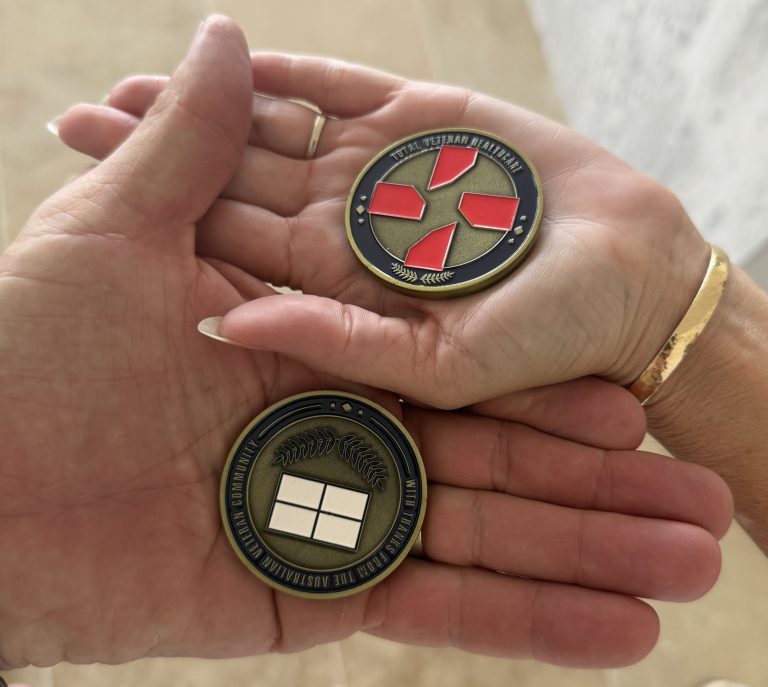Supporting Veterans With Treatment Resistant Conditions
For many Veterans, mental health recovery is not straightforward. Conditions such as post-traumatic stress disorder (PTSD), depression, anxiety, and substance use disorders often fluctuate in intensity, and can persist despite standard treatment approaches. This is why structured and responsive escalation healthcare is essential to ensure Veterans with complex or treatment-resistant mental health conditions receive timely, targeted, and specialised care.
Understanding Escalation in Mental Health Care
Escalation healthcare refers to the process of identifying when a patient’s mental health needs exceed the current level of support, and initiating a higher or more specialised level of care. This can include referrals from GPs to specialist psychiatric services, and the introduction of advanced therapies such as Transcranial Magnetic Stimulation (TMS), or coordinated inpatient treatment.
For Veterans, whose experiences often involve trauma, operational stress, and long-term challenges in transitioning to life outside the ADF, escalation healthcare provides a vital safety net to treatment; when standard treatments do not deliver adequate relief, further clinical options are accessible without delay.
Treatment Resistant Conditions
Treatment-resistant, complex chronic conditions are not uncommon among Veterans. Despite high-quality psychotherapy, psychology, medication, or counselling, some people continue to experience significant distress and impairment. When treatment plans aren’t adapted to meet the unique, long-term nature of a condition, patients can be left feeling frustrated, isolated, and with a sense of hopelessness.
Escalation healthcare plays a crucial role in breaking this cycle. Escalation healthcare and treatment plans with clear escalation pathways use lack of progress as a trigger for reassessment. By incorporating escalation protocols, healthcare providers like Total Veteran Healthcare can respond quickly when Veteran patients show minimal or limited improvement, connecting them with advanced treatment pathways that may include innovative therapies, psychiatric review, or multidisciplinary intervention.
A Coordinated Approach to Escalation
At Total Veteran Healthcare, escalation healthcare is embedded in every stage of patient support. Clinicians work collaboratively to identify early signs that a Veteran’s condition may not be responding as desired. Regular case reviews, outcome tracking, and communication between GPs, psychologists, psychiatrists, and Allied Health professionals ensure our patients are not left feeling abandoned.
Our multidisciplinary approach allows for seamless transition between care levels, whether that means introducing medication management, inpatient treatment, day programs, or evidence-based advanced therapies such as TMS for treatment-resistant depression.
Escalation as Prevention, Not Reaction
Importantly, escalation healthcare is not solely reactive. It is designed to prevent crisis by identifying emerging signs of deterioration early. Veterans and their families are encouraged to engage in open dialogue with their care team, report changes in mood or behaviour, and participate in regular mental health check-ins.
Early intervention reduces the likelihood of hospitalisation and promotes recovery through proactive care adjustments.
Innovative Treatments
For Veterans facing treatment-resistant conditions, access to innovative treatments can be life-changing. TMS, for instance, has shown promising results for individuals who have not responded to conventional medication or psychotherapy. As part of an escalation care plan, these treatments are introduced under close clinical supervision, ensuring safety and effectiveness while maintaining continuity of care.
By integrating these options into a broader escalation model, healthcare providers can offer Veterans real alternatives and renewed hope when other treatments have not achieved the desired results.
Supporting the Whole Veteran
Effective escalation care extends beyond clinical settings. It involves family education, peer support, and community engagement to strengthen recognition of early warning signs. Empowering veterans and those around them to seek help at the first signs of decline ensures that care escalation happens before crisis, not after.
Mission-Led Healthcare
For Australian Veterans, escalation healthcare is not just a clinical process—it is a safeguard. It ensures that every individual receives the level of mental health support they need, when they need it, especially in the face of treatment-resistant conditions. By embedding escalation healthcare pathways, encouraging collaboration across providers, and incorporating innovative treatments, we can deliver care that is responsive, adaptive, and potentially life-changing.
If you or someone you know is struggling with a mental health condition that hasn’t improved with standard treatment, reach out to your GP to explore clinically appropriate options.
Call Total Veteran Healthcare on 07 3523 3991, or book an appointment with your GP to learn more about advanced mental health care and innovative treatment options for Veterans.





